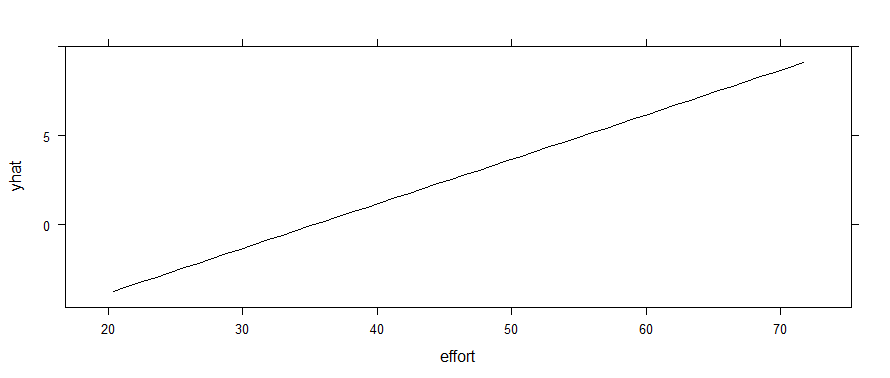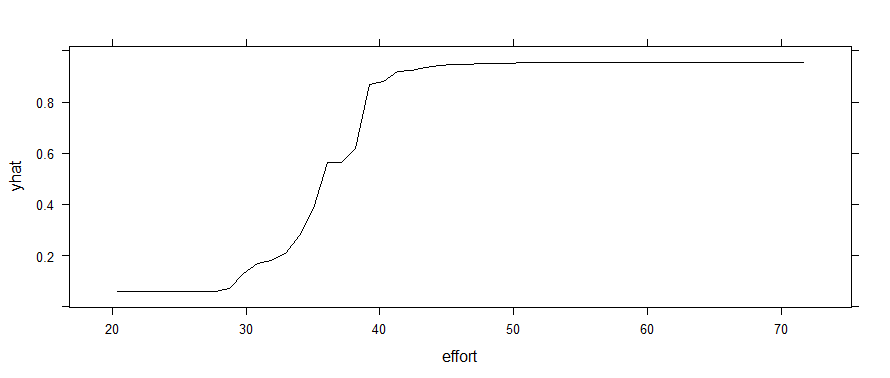I'd like to understand why my partial dependence plots for a logistic regression model simply show up as straight lines -- even when I'd expect basically a threshold effect from a covariate. I know partial dependence plots are typical of machine learning, but the (excellent) description by the authors of the pdp] package suggest glms are fair game. So why does the relationship between outcome and effort (below) appear to be linear?
Here's a dummy dataset. Note that I forced higher values of effort for outcomes corresponding to 1 (a "win"). Also note that sometimes the algorithm won't converge -- if that's the case, just generate new data.
# Sample game data
outcome <- as.vector(cbind(rep(0,25), rep(1,25)))
effort <- as.vector(cbind(rnorm(25, 25, 5), rnorm(25, 50, 10)))
skill <- rnorm(50, 50, 20)
game <- cbind(outcome, effort, skill) %>% as.data.frame()
# Simple glm
mod <- glm(outcome ~ effort + skill, data = game, family = binomial(link = "logit"))
summary(mod)
partial(mod, pred.var = c("effort"), plot = TRUE)
Call:
glm(formula = outcome ~ effort + skill, family = binomial(link = "logit"),
data = game)
Deviance Residuals:
Min 1Q Median 3Q Max
-1.26979 -0.13985 -0.00751 0.01736 2.34734
Coefficients:
Estimate Std. Error z value Pr(>|z|)
(Intercept) -15.12758 5.73393 -2.638 0.00833 **
effort 0.50174 0.19218 2.611 0.00903 **
skill -0.05414 0.05142 -1.053 0.29231
Clearly, effort is going to be a strong predictor -- with way more wins (1s) associated with higher effort (given my data assignments). However, the partial dependence plot looks like this:
partial(mod, pred.var = c("effort"), plot = TRUE)

If I use a random forest instead, that threshold effect shows up. (Yes, I know it throws a warning about using <5 unique response values in regression. It also shows up if you force outcome to be a factor.)
rf <- randomForest(outcome ~ effort + skill, data = game)
partial(rf, pred.var = c("effort"), plot = TRUE)

My primary question here is not about which model is a better fit, but why the partial dependence is apparently linear with the logistic regression? Why doesn't that 30-40 range pop out as a threshold in the glm plot? Is that truly representing the relationship between game and effort in the model?
Thanks for any insights!


